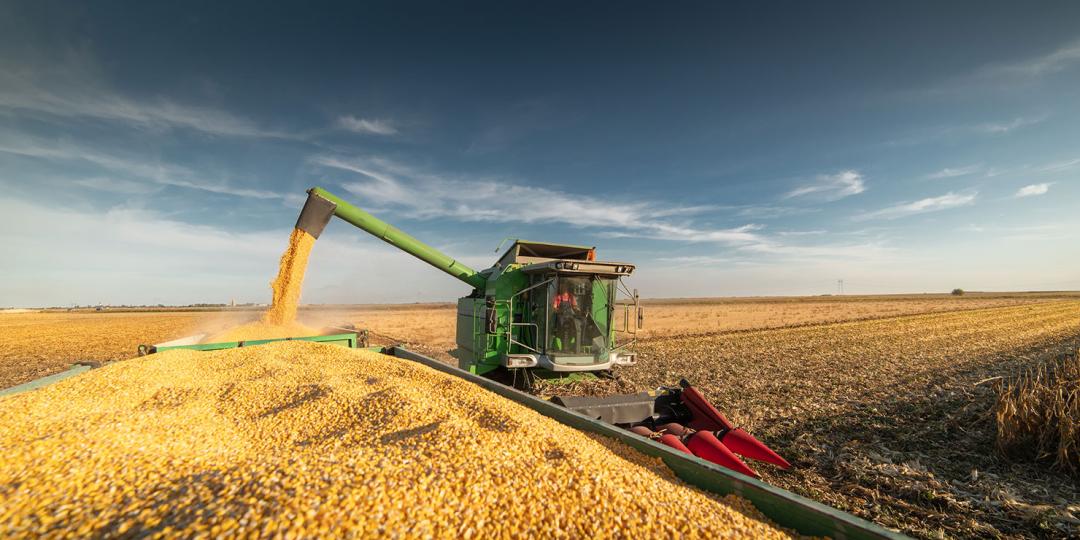South Africa’s agricultural exports are expected to soar to 161.6 million tonnes as global demand for food produce rises, despite challenges such as the war in Ukraine and escalating freight costs.
FNB senior agricultural economist Paul Makube said the contribution of the agricultural sector to GDP currently remained “very positive”, despite the significant impact of flooding in KwaZulu-Natal, the war between Russia and Ukraine, and an outbreak of foot-and-mouth disease that had resulted in a temporary ban by China on imports of products of cloven-hoofed animals from South Africa.
“The good news is that this resilient South African agri performance is likely to continue for the foreseeable future. We remain in the La Nina climate phase, which means we can expect the good rains of recent months to continue through our winter season, and probably into the coming peak agriculture season,” Makube said.
“The summer grain crops outlook is also still very positive, with record sunflower, soya beans, and maize crops. The country’s commercial summer grain and oilseed crop reached close to 18m tons, with the country’s biggest stable at 14.9m tons. And when you consider the domestic maize consumption typically averages just under 12m tons, reserve levels and the potential for solid exports are both very good.”
However, he added that the war in Ukraine had presented a “mixed bag” effect on exports. “On the one hand, produce that was anticipated to flow into Russia and Ukraine was suddenly halted due to the suspension of the former from SWIFT (Society for Worldwide Interbank Financial Telecommunications), which had significant implications for all countries that dealt in agri-commodities with the two countries,” he said.
“South Africa is one of those countries, but not on such a large scale that the disruptions had a massively significant negative impact on our agri-export sector. There were some exporters that still had an opportunity to export produce into Russia - and for them, the massive spike in demand translated into very solid agri-commodity prices.”
Demand for quality, affordable agricultural produce is expected to increase dramatically in both countries as export bans imposed by many of their key supply regions take hold.
“While this may present opportunities for South African agri-exports, the extent to which exporters in this country capitalise on those opportunities will still depend largely on their ability to overcome the logistics challenges and ensure security of payment from importers in the war-torn regions,” Makube said.
He added that the rising cost of freight was also shaping prospects for agri-exports. “Overall freight costs have been on a sharp and steady upward trend in recent months, not just on the back of steep fuel price increases, but also driven by general price hikes introduced by the key freight and logistics providers globally. Add to this the lingering global supply chain bottlenecks and infrastructure insecurity caused by Covid-19, much of which has still largely not been resolved, and freight complexities and costs have the potential to impact very negatively on agri-exports in the months and years ahead,” he said.
Some 41% of the country’s agricultural produce is exported across Africa, presenting opportunities for savvy exporters to build a far more robust and resilient export supply chain that is largely protected from the influences of international freight challenges.
“As the positive impact of the recent African Continental Free Trade Area (AfCTA) agreement becomes more widely felt, there is the real potential for South African exporters to build highly resilient and very lucrative operations across the continent. Immediate export prospects, into Africa and globally, remain very solid, with an anticipated 161.6m tons of produce likely to be packed for export in this season,” he said.
This represents a marked year-on-year increase from the already high 2.4m tons exported in 2021.
The exchange rate of the rand against most major currencies also remained conducive to good margins, which he said could offset pressures created by the rising global inflationary environment.
“In terms of citrus, specifically, the recent breakthrough agreement with China around export/import protocols will likely have a very positive long-term impact on South Africa’s citrus export volumes into that country in the coming years,” he said.













